1. Rudy Giuliani’s Hair Dye Meltdown
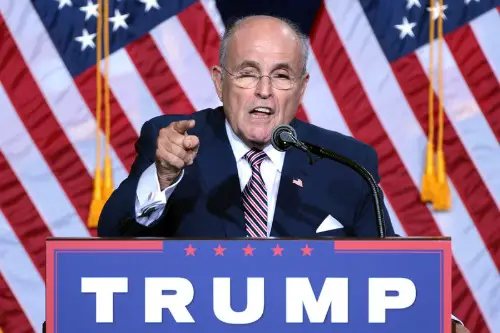
In November 2020, Giuliani held a press conference to defend Trump’s election fraud claims—and things got messy fast. As he sweated under TV lights, streaks of what appeared to be hair dye trickled down his cheeks. It was an almost cinematic unraveling, as he quoted “My Cousin Vinny” while accusing election workers of corruption. The moment became an instant symbol of the Trump team’s flailing legal efforts.
Giuliani doubled down afterward, defending his statements and insisting he had solid proof. But the bizarre optics overshadowed everything he said. For many, this wasn’t leadership—it was theatrical desperation. It was the meltdown that launched a thousand memes.
2. Marco Rubio’s Water Bottle Fumble

During the GOP response to Obama’s 2013 State of the Union, Senator Marco Rubio awkwardly reached for a water bottle mid-speech. The small gesture looked oddly desperate on camera, distracting from his message. It became a viral moment, and not the kind candidates hope for. The optics overshadowed the content completely.
Rubio joked about it afterward, trying to turn it into a relatable moment. But the damage had already been done in terms of gravitas. He was seen as sweating under pressure—literally and figuratively. Leadership was the goal, but all anyone remembered was the sip.
3. Howard Dean’s Iowa Scream
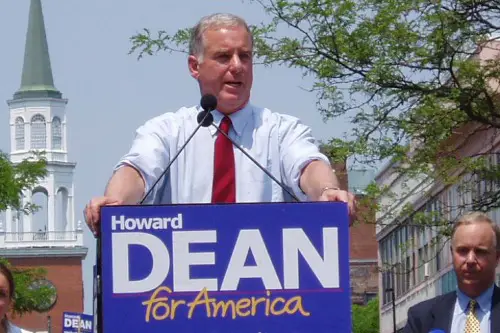
In 2004, then-Governor Howard Dean tried to rally supporters after a disappointing third-place finish in the Iowa caucuses. But instead of inspiring confidence, he let out a wild, high-pitched “YEAHHH!” that echoed across national news for weeks. The infamous “Dean Scream” instantly became a punchline and arguably tanked his campaign. Dean insisted it was just passion—but America saw something closer to a meltdown.
He later explained that the crowd was loud and he had to shout to be heard, which didn’t translate on television. Still, the image stuck: a man who lost his grip in a crucial moment. It didn’t help that media replayed the clip over 600 times in four days. Dean called it energy—viewers called it chaos.
4. Rick Perry’s “Oops” Debate Blunder
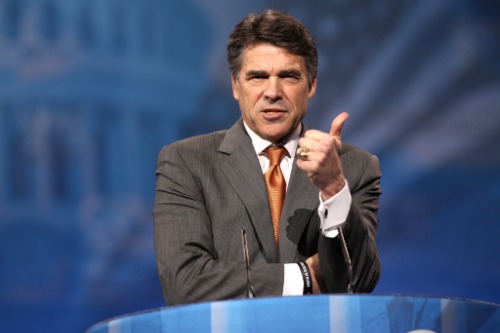
During a 2011 Republican primary debate, Rick Perry announced he would eliminate three federal agencies—but forgot the third one. After awkwardly fumbling for what felt like an eternity, he admitted defeat with a sheepish “Oops.” That single word became the defining moment of his campaign. Perry later blamed fatigue and even back problems, but the damage was done.
He tried to reframe the moment as human and relatable, saying everyone makes mistakes. But most people weren’t looking for relatability—they were looking for competence. A presidential hopeful forgetting his own talking points on live TV looked more like a breakdown than boldness. It’s still taught in political science classes as a cautionary tale.
5. Joe Biden’s “You Ain’t Black” Comment

During a May 2020 interview with Charlamagne Tha God, Joe Biden said, “If you have a problem figuring out whether you’re for me or Trump, then you ain’t Black.” The backlash was immediate, with critics from both parties calling the comment offensive and presumptive. Biden quickly apologized, saying he’d been too cavalier. But the damage was already done.
He tried to pivot by focusing on his long history with Black voters and civil rights issues. Still, many felt the comment was arrogant and dismissive. It was a flub that exposed a deeper tension about entitlement to votes. Biden called it a “joke,” but most people saw it as a momentary meltdown.
6. Donald Trump’s Sharpie-Gate

In 2019, President Trump displayed a map of Hurricane Dorian’s projected path that had clearly been altered with a black Sharpie. This was done to justify his incorrect tweet that Alabama was at risk. Instead of admitting a mistake, Trump doubled down and forced NOAA to issue a statement backing him. It became a national spectacle.
The insistence on being right, even when proven wrong, felt less like confidence and more like fragility. Trump defended the map and called the criticism unfair. But the whole episode gave Americans a surreal glimpse into his refusal to concede even trivial errors. He framed it as strong leadership, but to many it was just stubborn spectacle.
7. Bernie Sanders Yelling at Reporters

In 2019, when asked about his campaign strategy, Bernie Sanders lashed out at reporters in a now-viral moment. “I’m dealing with a fucking global crisis,” he shouted, before storming off. The clip circulated widely, showing a side of Sanders that many had seen at rallies but not in quieter settings. His defenders saw righteous anger—others saw a public snap.
Sanders said he was frustrated with the media’s obsession with drama over policy. Fair enough—but there’s a line between passion and losing your temper. The incident raised questions about how he’d handle pressure in the Oval Office. Still, Bernie never apologized—in his mind, that was leadership.
8. Ted Cruz’s Cancun Getaway Explanation

During the Texas freeze crisis in 2021, Senator Ted Cruz flew to Cancun with his family, leaving millions of Texans in freezing homes. When confronted, he blamed his daughters and called it a “working vacation.” The backlash was swift and brutal, especially after photos emerged of him dragging luggage through the airport. Cruz returned quickly, but not before the damage was done.
He tried to frame the trip as a brief attempt to “be a dad,” not an abandonment of duty. But most people weren’t buying it. The optics were brutal—leadership wasn’t supposed to look like a beach escape. Cruz called it a mistake; critics called it cowardice under pressure.
9. Kamala Harris’ Nervous Laughter
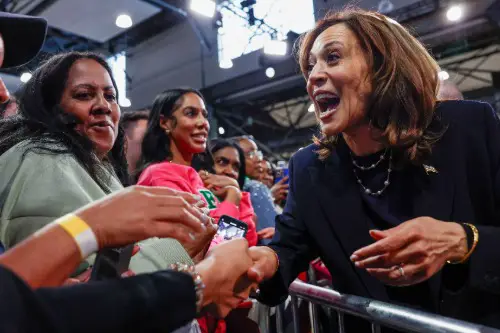
Vice President Kamala Harris has developed a reputation for nervous laughter in high-pressure interviews. One particularly criticized moment came during a 2021 interview about visiting the southern border, where she laughed and said, “And I haven’t been to Europe, either.” The attempt at humor didn’t land—and many felt she was avoiding a serious issue. The backlash was sharp, even from allies.
She later clarified her stance and eventually visited the border, but the clip haunted her for months. Harris defended her communication style as authentic, but others saw it as evasive. In a crisis moment, laughter can read as dismissal. It wasn’t a scream or a rant—but it felt like a crack under pressure.
10. Chris Christie’s Beach Day
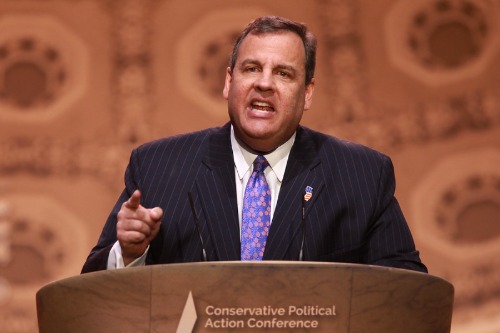
In 2017, while New Jersey was under a state government shutdown, Governor Chris Christie was photographed lounging on a beach closed to the public. When asked about it, he shrugged and said, “That’s just the way it goes.” The response felt flippant and arrogant, especially as thousands of residents were locked out of public spaces. Christie didn’t back down—he called the criticism “envy.”
He insisted he had every right to use the beach since it was the governor’s residence. But the image of him soaking up the sun while others suffered was politically toxic. Christie said he was leading just fine—everyone else saw entitlement on full display. It became a defining visual of political tone-deafness.
11. Hillary Clinton’s “Basket of Deplorables” Moment
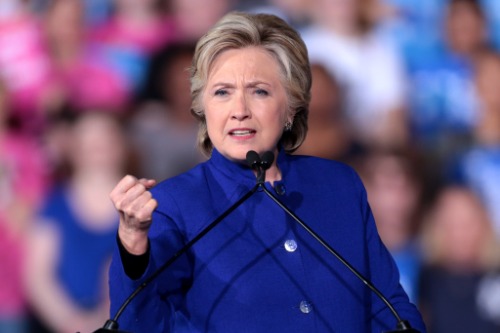
In 2016, Hillary Clinton said that half of Trump’s supporters belonged in a “basket of deplorables.” She later walked it back slightly, but the phrase stuck—and it alienated a swath of voters. The moment, caught on camera, came off as elitist and dismissive. Critics said she was melting down under campaign stress.
Clinton defended the comment by pointing to racism, sexism, and xenophobia among Trump’s base. But the sweeping generalization gave Trump a major messaging win. It was a moment where controlled frustration boiled over. She called it honest—others called it political self-sabotage.
12. Sarah Palin’s Katie Couric Interview
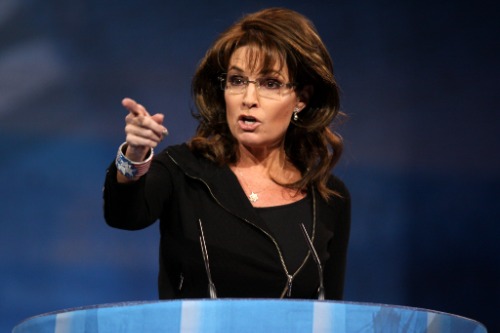
Sarah Palin’s 2008 interview with Katie Couric went viral for all the wrong reasons. When asked what newspapers she read, Palin famously answered, “All of them,” without naming any. The evasive responses and muddled syntax made her appear woefully unprepared. Many Americans cringed as she tried to spin it as media bias instead of a poor showing.
Palin claimed she was being condescended to and praised her own “authenticity.” But authenticity only gets you so far when you’re dodging basic questions. She later leaned into her outsider image, claiming it was what made her a different kind of leader. Still, that moment on camera marked a steep decline in her national credibility.
13. John McCain’s “That One” Debate Comment
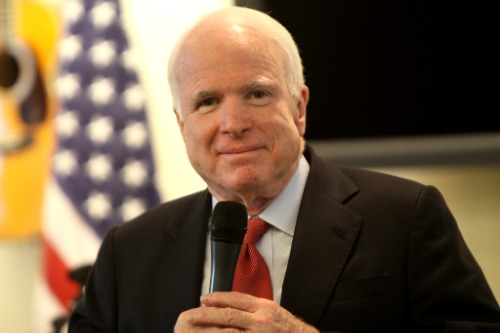
During a 2008 presidential debate, John McCain referred to Barack Obama as “that one,” while gesturing dismissively. The phrasing felt weirdly impersonal and even a bit dehumanizing. It caught viewers off guard and drew swift commentary across media outlets. Many interpreted it as frustration breaking through McCain’s usual composure.
McCain later said it was a harmless moment and didn’t intend disrespect. But tone matters—especially on live television. It looked like he was losing patience under pressure. He called it plain talk; critics called it passive-aggressive meltdown energy.
14. Joe Lieberman’s Angry Floor Speech
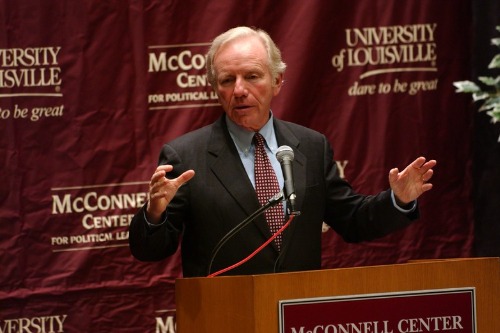
In 2006, Senator Joe Lieberman delivered a fiery speech on the Senate floor defending his support for the Iraq War. He lashed out at fellow Democrats for what he saw as betrayal, raising his voice and gesticulating angrily. It was raw and emotional, but not necessarily persuasive. Many saw it as a man cornered, fighting to stay relevant.
Lieberman argued he was standing on principle and showing backbone. But the emotional intensity came off more like flailing than leading. His Independent run later that year was fueled by this exact kind of defiant energy. He called it integrity—others saw it as political isolation in real time.
15. Ron DeSantis’ Debate Malfunction
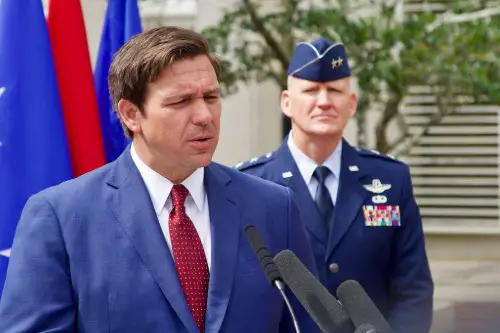
During a 2022 Florida gubernatorial debate, Ron DeSantis froze when asked if he would serve a full four-year term. His prolonged silence—caught on camera—was glaring, awkward, and damaging. Eventually, he pivoted without answering directly, but the moment was already out there. For someone known for confidence, it looked like a mental blank under fire.
DeSantis later brushed it off and stuck to his policy talking points. But for many viewers, it felt like a moment of exposed political calculation. He was trying to be slick, but it read like a stumble. He called it strategy—everyone else saw it as a glitch in the matrix.
This post 15 Political Leaders Who Had a Meltdown on Camera and Called It Leadership was first published on American Charm.


